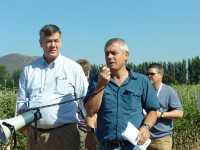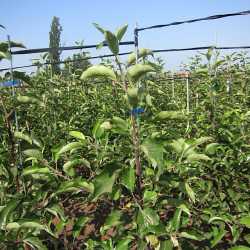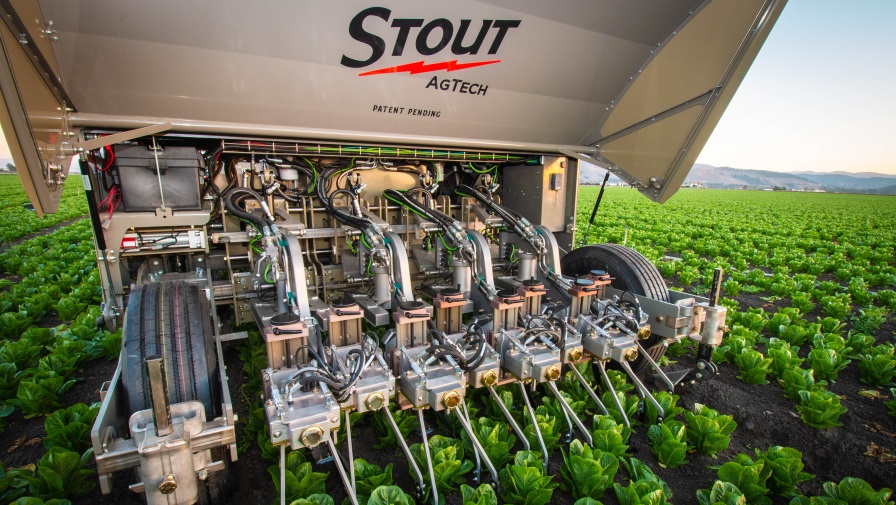IFTA Conference Attendees Visit Chilean Nurseries

One of the highlights of the International Fruit Tree Association (IFTA) Chilean tour and post-conference tours were the visits to two outstanding Chilean nurseries: Univiveros, Paine–Region Metropolitna and Vivero (www.univiveros.cl) and BuenosAires DeAngol-Angol, Arauccania, Chile (http://viverobuenosaires.cl).
Both of these nurseries went out of their way to open their doors to our IFTA group. We toured their field nurseries and saw presentations on their production techniques. All were most impressed with their modern production, equipment, and the quality of the trees in the field nurseries.
The Chilean tree fruit nursery industry appeared state-of-the-art to us. They network around the world for the best information and are part of many professional associations: The Andes Nursery Association, A.N.A. (www.anachile.cl) and the International New Varieties Network, INN, (www.nurserynet.com).
Both nurseries showed a strong commitment to testing and marketing new cultivars and rootstocks to serve the Chilean fruit industry.
Univiveros produces 2 million rootstocks annually with many managed varieties on 300 hectares (700 acres). They indicated they produce 36% of Chilean apple trees, 38% of pears, and 80% of cherries. Gala is an important variety, but color is the key attribute of cultivars propagated, mostly Brookfield Gala but some Buckeye Gala. 20,000 Pink Lady trees are produced annually but are being replaced by Rosy Glow. Ambrosia is a controlled variety of interest in Chile. Apple Geneva rootstocks are being produced including G202, G11, and G95. Cherry production centers around Gisela 6 and Colt with some CAP 6P and Maxma 60.
Their breeding program for peaches is focused on storage ability, as most fruit is exported by container via ship. It is 30 days to the U.S., 55 days to China and Taiwan, and 40 days to Europe. We sampled some new cultivars that appeared to have the non-melting firmness gene, as the fruit was ripe but hard.
Tree quality was exceptional, and they are using the knip-boom technique, producing two-year-old nursery trees at a finished cost of $4.
Thoughts From U.S. Nurseries

So what did visitors from U.S. nurseries learn while visiting with their Chilean counterparts? Here’s what some of them had to say.
• Wally Heuser, Summit Tree Sales, Gisela Inc., and International Plant Management, Lawrence, MI: “I have visited Chile many times. The whole nursery industry in Chile has moved rapidly forward in the last five years.”
• Phil Baugher, Adams County Nursery, Aspers, PA: “I was impressed with feathering of the apple nursery stock; it was just outstanding.”
• Tod Erickson and Tye Fleming, Helios Nursery, Carlton, OR: “Exceptional!”
• Neal Manley, Willow Drive Nursery, Ephrata, WA: “I was impressed with their attention to detail, and the quality of their trees. Their membership in INN and A.N.A. has brought the most modern technology and new varieties to their industry. The Chilean government and the Chilean nurseries have played by the rules and are very strict on plant quarantines, introductions, and plant patent protection.”










